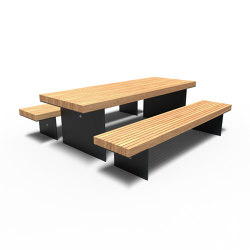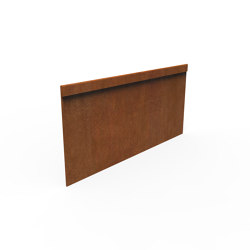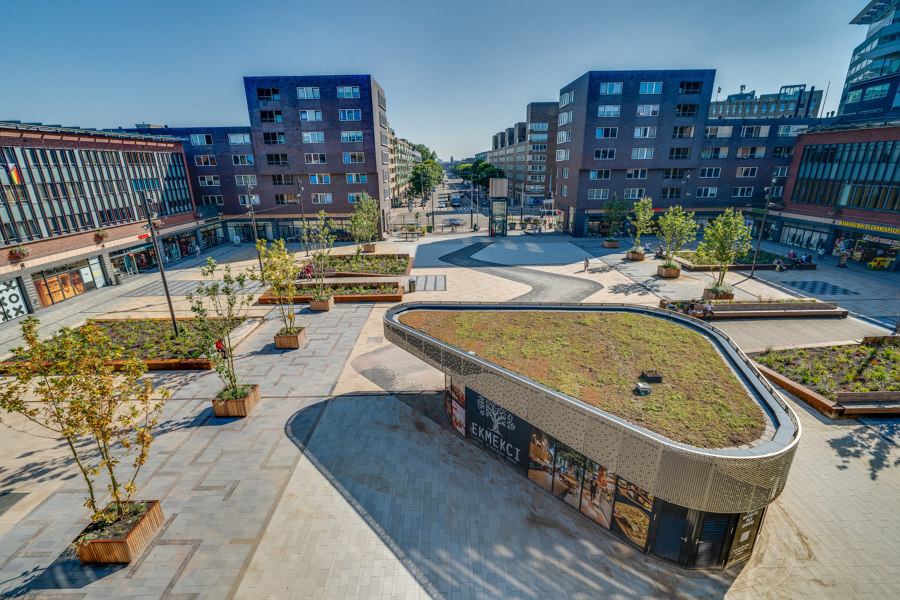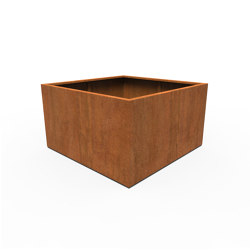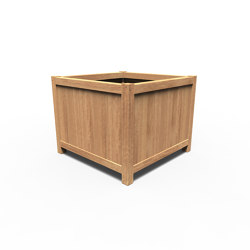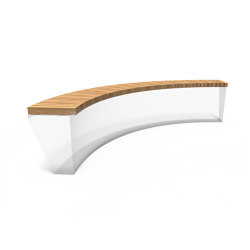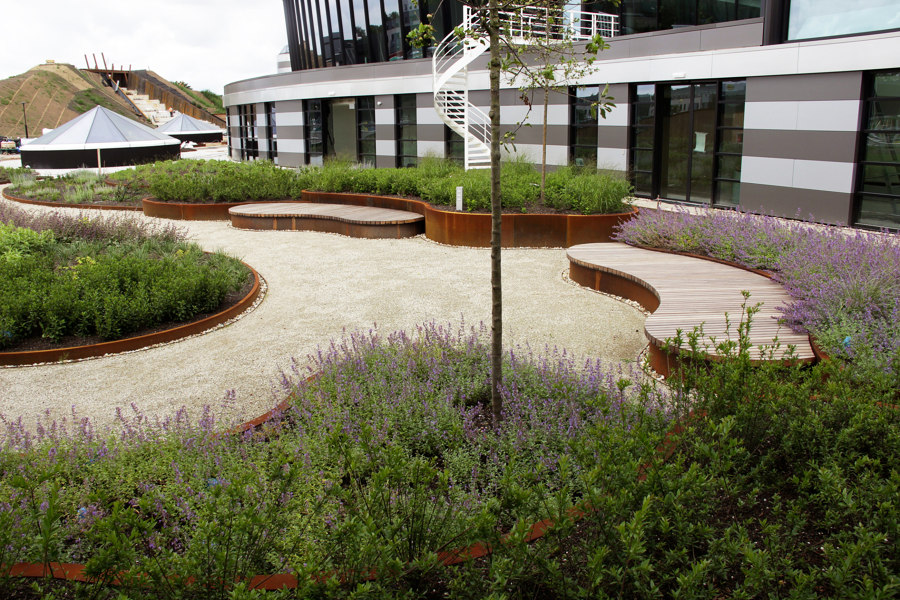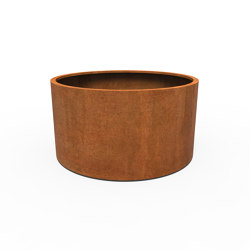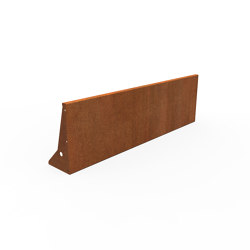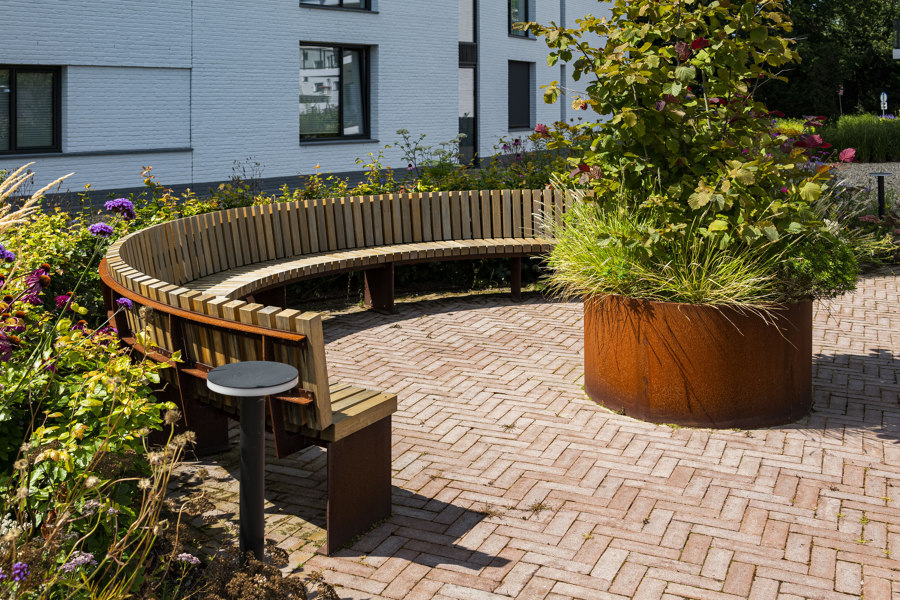Furns: designing for nature and nurture in urban spaces
Historia de la marca de Emma Moore
Uden, Holanda
26.04.22
Dutch urban-furniture specialist Furns' modular and sustainable outdoor products help architects and planners to create public spaces that not only benefit local communities but the environment, too.
Furns is making space for nature and mindful escape even in the tightest of built environments. Seen here are the gardens of Cruquius Binnenbocht, a recent social housing development in Amsterdam
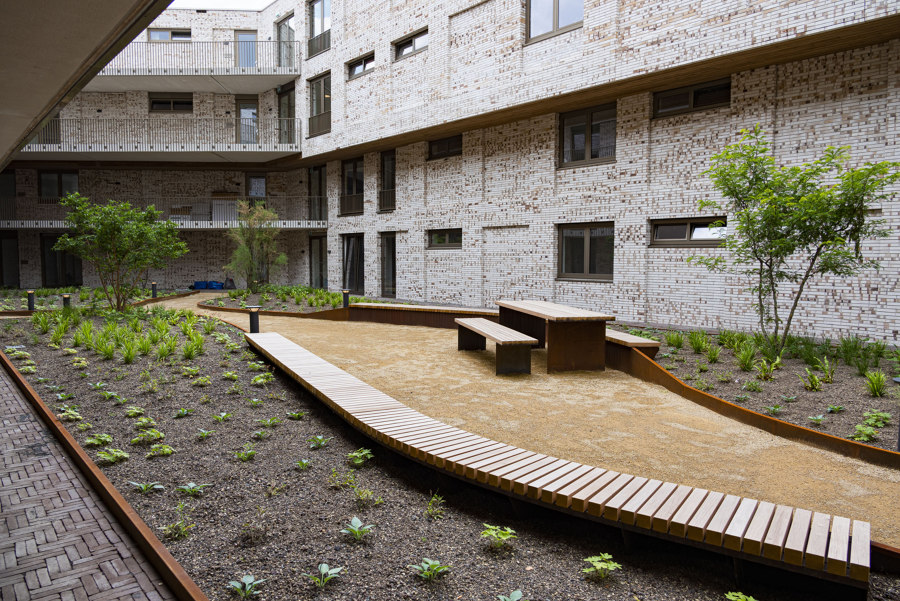
Furns is making space for nature and mindful escape even in the tightest of built environments. Seen here are the gardens of Cruquius Binnenbocht, a recent social housing development in Amsterdam
×Increasingly, the planning of outdoor urban spaces is less an exercise in prettifying unbuilt areas for the benefit of lunchtime strollers and office smokers; more a heavily-laden exercise in making these spaces actively support life in our cities and on our planet. Enmeshed in the fabric of metropolitan working, cultural, ecological and social life, it has become a tool with which to encourage good mental health, respond to climate change and reinforce cultural identity.
That’s a lot of responsibility on the shoulders of a park bench, a flower bed, a stretch of grass or a water feature. But these are the building blocks; making them count towards a holistic green urban space is where the challenge lies. Reduced to its simplest message, the role of public space in towns today is to mutually benefit nature and the community, and the practices of all protagonists, from planners to architects, horticulturalists to urban furniture designers need to be engaged to this end.
A graphic layout of beds and planters brings the natural world to the central square of Amsterdam’s Bos en Lommerplein neighbourhood and Campus Diemen in the south of the city
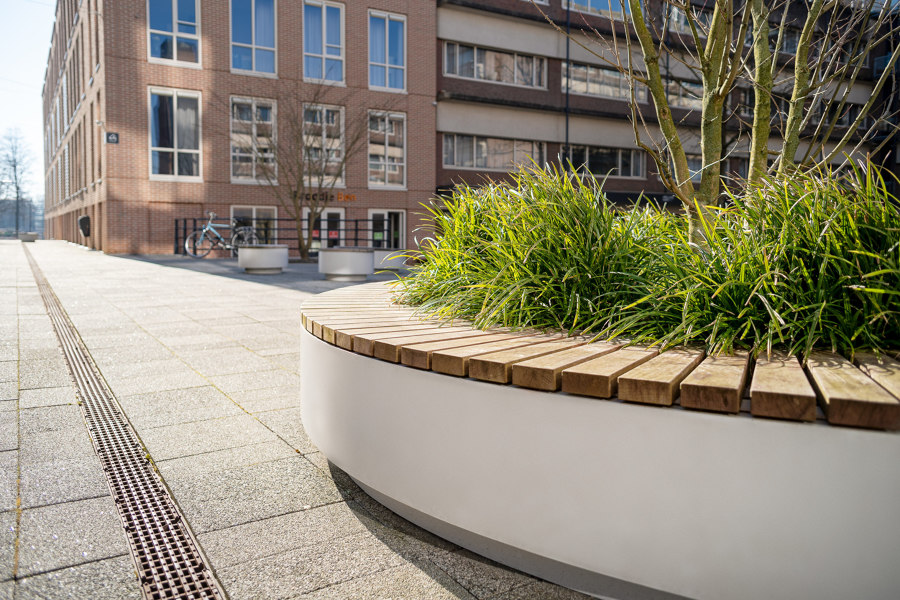
A graphic layout of beds and planters brings the natural world to the central square of Amsterdam’s Bos en Lommerplein neighbourhood and Campus Diemen in the south of the city
×Materials of change
Dutch urban furniture designer Furns is among those who have been listening, and are doing their bit to contribute to these goals. Closely partnering with planners and architects, Furns is on a mission to help create inviting, functional spaces that only positively impact the environment. This holds sway over the materials they use alongside the practicality of its urban furniture designs. A core product, for example, is its retaining wall, a modular structure that can incorporate a seating platform into its design. Increasingly, the material of choice for this and accompanying features is Corten Steel – 10 x lighter than concrete and faster and easier to install, yet long-lasting – and bamboo.
Closely partnering with planners and architects, Furns is on a mission to help create inviting, functional spaces that only positively impact the environment
‘Corten steel is one of the most durable and maintenance-free materials to use in public spaces,’ explains Furns's co-owner Sil van Duijnhoven. ‘There is no coating or conservation needed to use it outdoors and it protects itself against outside influences. And Moso Bamboo Extreme is our most sustainable material – it is certificated with a CO2 neutral stamp. This is because of its extremely fast growth rate and harvest possibilities in contrast to the expected lifetime of 50 years.’ In tandem with these sustainable material credentials, designs themselves need to have longevity ‘A product is not only sustainable by material and construction, but also by a unique and timeless design,’ adds design-trained van Duijnhoven.
Slatted wooden benches are creatively incorporated into retaining walls made from Corten steel at the new AFAS Experience Centre in Leusden (top) and at a care home in Zwijndrecht
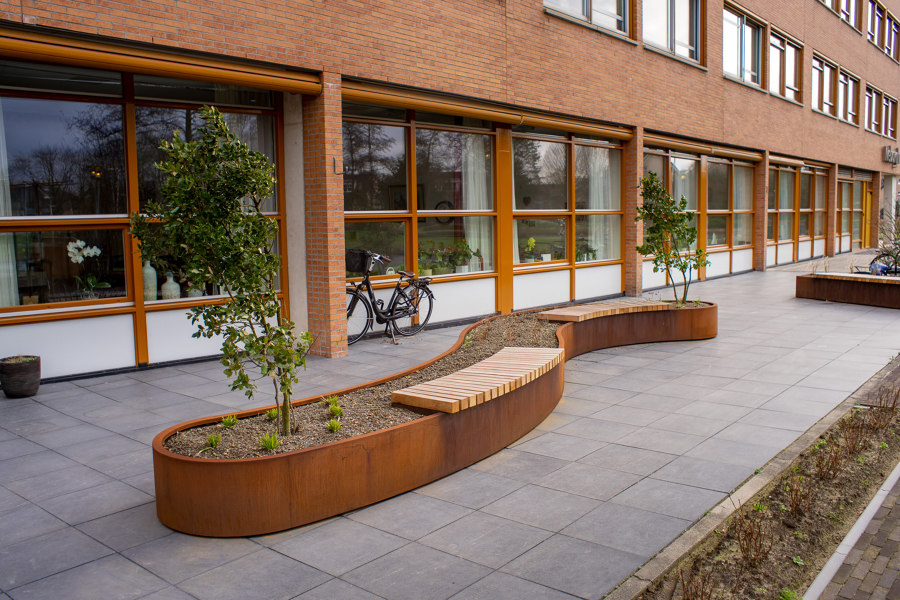
Slatted wooden benches are creatively incorporated into retaining walls made from Corten steel at the new AFAS Experience Centre in Leusden (top) and at a care home in Zwijndrecht
×Meeting the needs of both community and environment
Recently playing a part in the furnishing of the ING bank gardens in central Amsterdam, Furns was able to push its ecological capabilities further. ING gardens, whose landscaping was realised by Donker Design, is open to the public and ticks all the boxes of modern urban design. A leafy, flowing space with terraced lawns, it is zoned into areas where people can meet, brainstorm, walk, eat, take in art, work out, read in the outdoor library and meditate. A path-free zone has been seeded with native species of flowers, fitting the food and nesting habits of local bees and butterflies while trees attract the birds that used to nest in the former building.
A product is not only sustainable by material and construction, but also by a unique and timeless design
‘They asked for a total furnishing with the focus on sustainability, ’ says van Duijnhoven. ‘We supplied and designed a range of benches, rubbish-separating litter bins and planters, all furnished with Moso Bamboo Extreme, and we re-used a part of the steel furnishing on the site, which was still fine to use after replacing the hardwood beams for bamboo.’ This customised approach allowed them to be more circular in their designs and installations.
Corten steel planters in strong graphic designs make the link between the built and natural worlds; seen here at the Parc Fontaine residential development, Eindhoven (top) and Molenweg, Nijmegen
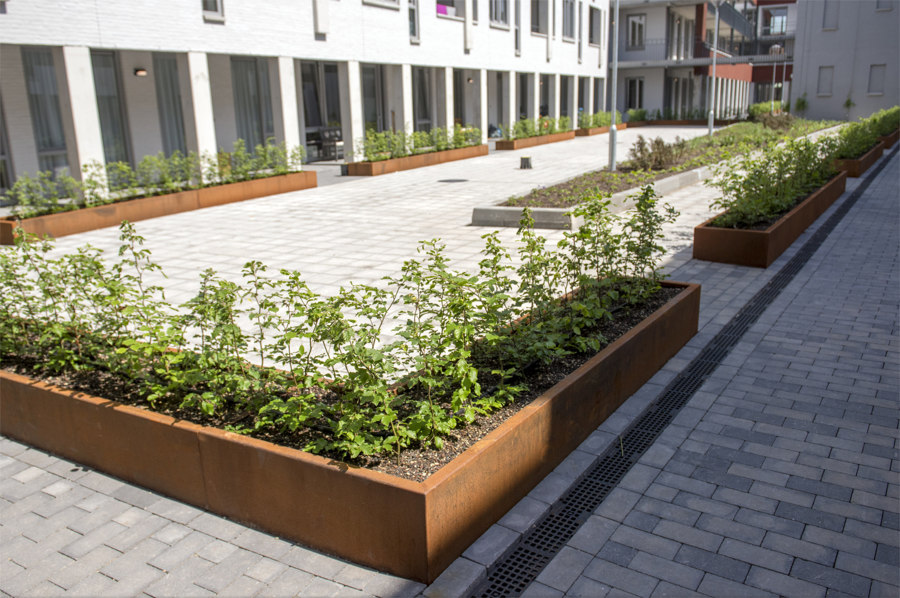
Corten steel planters in strong graphic designs make the link between the built and natural worlds; seen here at the Parc Fontaine residential development, Eindhoven (top) and Molenweg, Nijmegen
×Paving a way to time spent in nature
With community needs billing high on the list of planning considerations, design also has a big part to play. ‘Customers not only want to see the foliage, they want to be part of the foliage,’ states British green infrastructure developers Green and Blue, highlighting the growing importance of human experience in the equation. Furns’ approach is to develop products and schemes – walls, benches, picnic sets, planters, tree supports and bins (with recycling options, of course) – that become a part of the landscape, blending and extending nature to accommodate people comfortably within it.
Furns’ mixed-media additions to the urban landscape of Meerrijk in Eindhoven bridge the newer built developments and the more natural green and water features of the city’s northwest
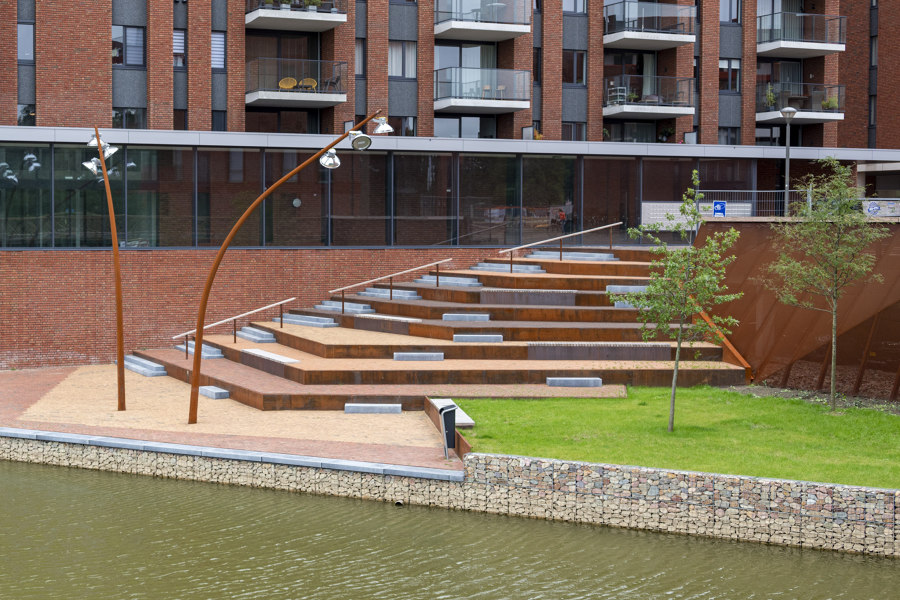
Furns’ mixed-media additions to the urban landscape of Meerrijk in Eindhoven bridge the newer built developments and the more natural green and water features of the city’s northwest
×The more in synergy with nature the conveniences, the smoother the transfer of city life to outside spaces and healing nature. And two years of quarantining and natural disaster has only sharpened our need to spend time in nature, while protecting it, wherever we choose to live.
© Architonic


